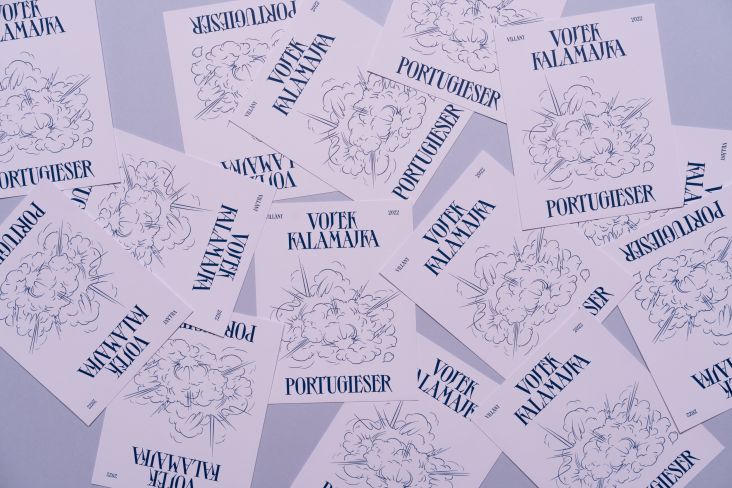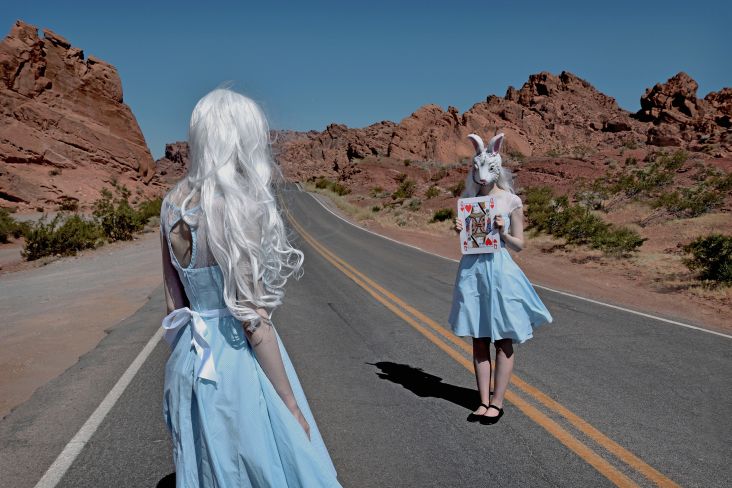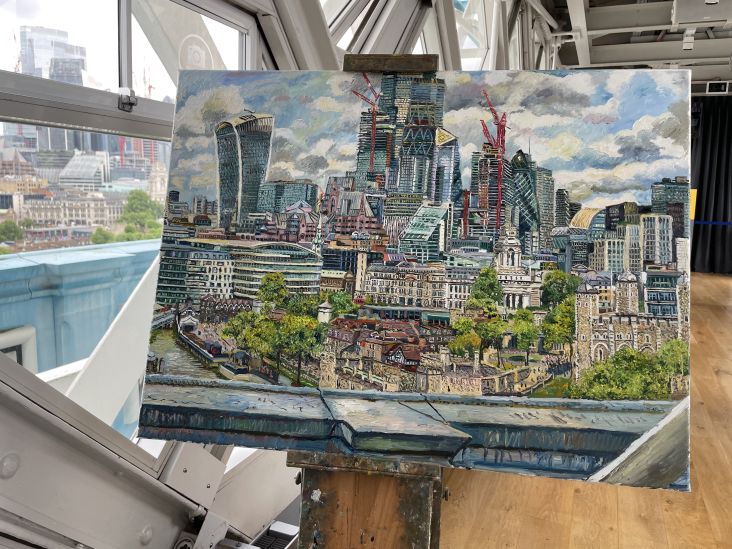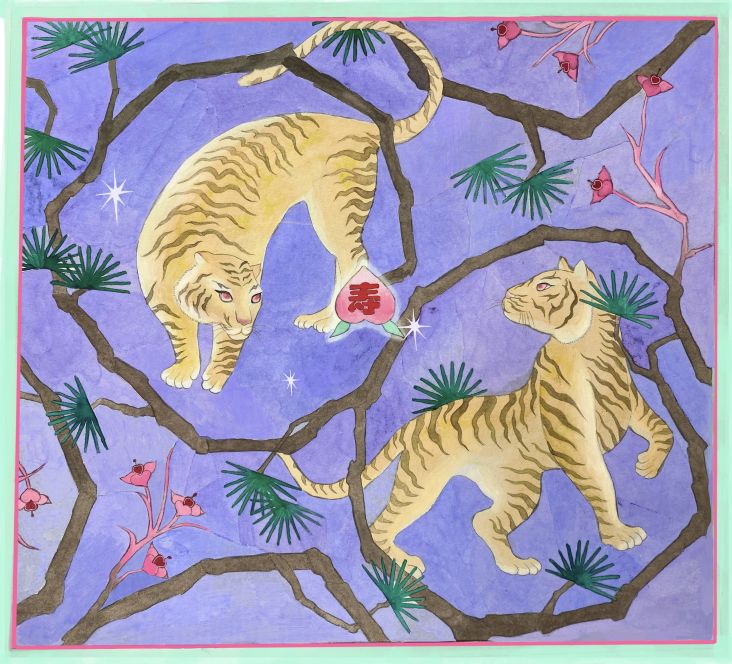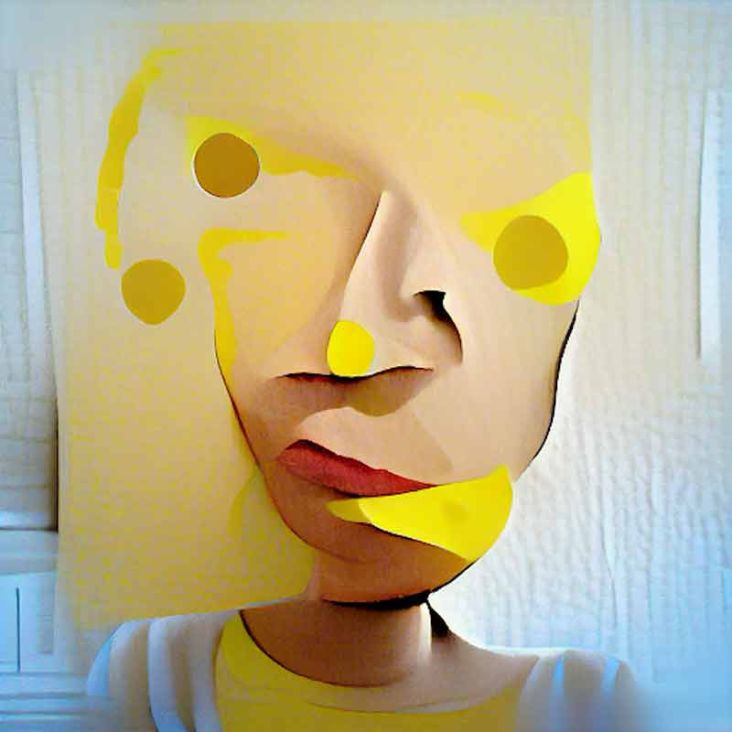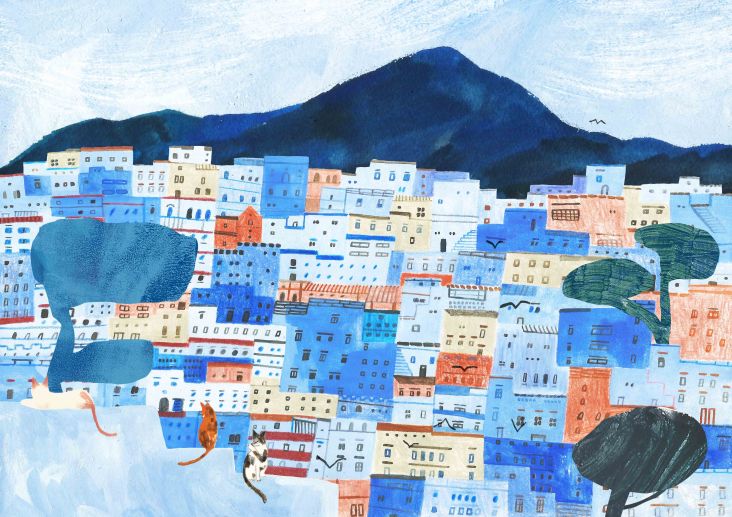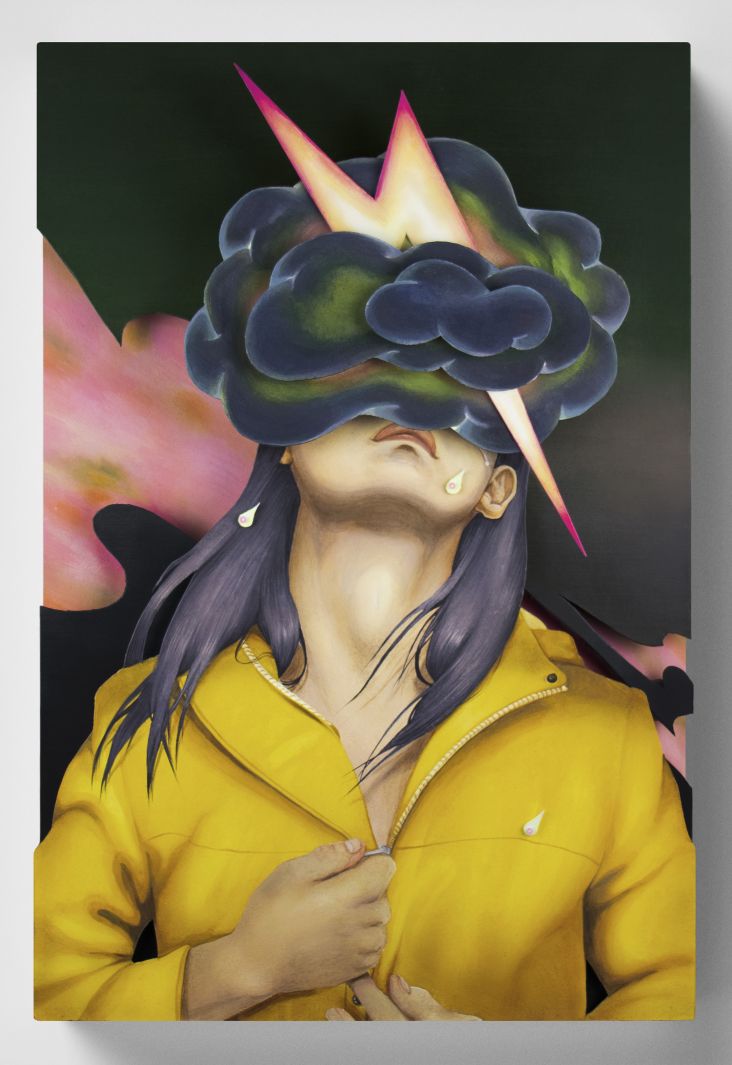Photo project uncovers the hunger, fear and mental scarring of Shanghai's harsh lockdowns
The Covid era hasn't just been about physical suffering. Chinese photographer Johnny Man's project focuses on the mental side-effects of prolonged lockdowns in his home city.
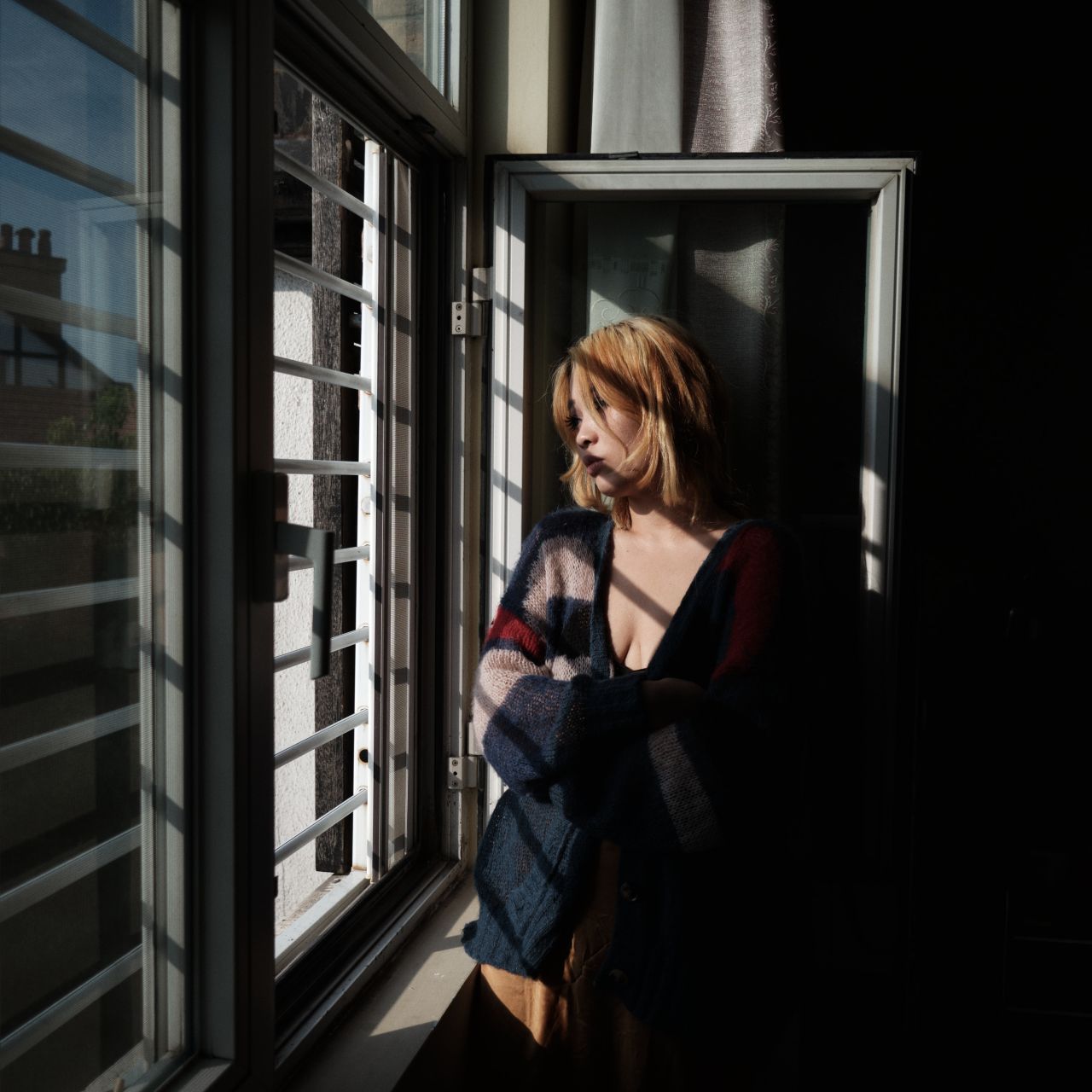
Kay © Johnny Man
Even when lockdowns are officially over, some people still feel trapped in a mental lockdown that can be brutally restricting. One artist addressing this concern is Johnny Man, a Chinese documentary photographer based in Shanghai.
His project Trapped after Lockdown documents the mental statuses of people who have difficulty moving on, following the strict two-month long lockdown imposed in Shanghai this year.
First, some background. "On 1 April 2022, given the widespread Omicron infections, Shanghai decided to launch a citywide lockdown," Johnny explains. "The megacity stopped functioning in no time."
After two months of the harshest lockdown in history, Shanghai started to reopen on 1 June. "Now, all aspects of life are slowly returning to normal," says Johnny. "Yet some people still suffer from anxiety and stress caused by what happened in the last two months and are having difficulty moving on."
And that's perhaps not surprising. Given the Chinese government's strict zero-Covid policy, everyone knows the city could be thrust into lockdown again should new cases be reported.
Consequently, Johnny believes, "Many citizens are in a subtle status of being set free physically, yet still trapped psychologically, in some sort of mental lockdown. This photo project presents the stories of people in Shanghai who share these feelings."
Getting people to participate, however, was anything but easy. "Not many people were willing to get photographed and talk about their feelings or what happened to them," he explains. "So it wasn't smooth making this at all. I really appreciate those who did agree to take part."
Looking at the portraits and stories of some of the people Johnny photographed, we begin with RenXiong, who has a pretty decent house with a large living room, well lit by the sun. With a breeze running through from time to time, it's downright cosy. It was bought around the end of last year. "I'd never have made this deal if I'd have known about this lockdown," he says.
RenXiong is a freelance photographer, so he barely had any income during the two-month lockdown. Tremendous anxiety overwhelmed him, especially when thinking about the pricey mortgage.
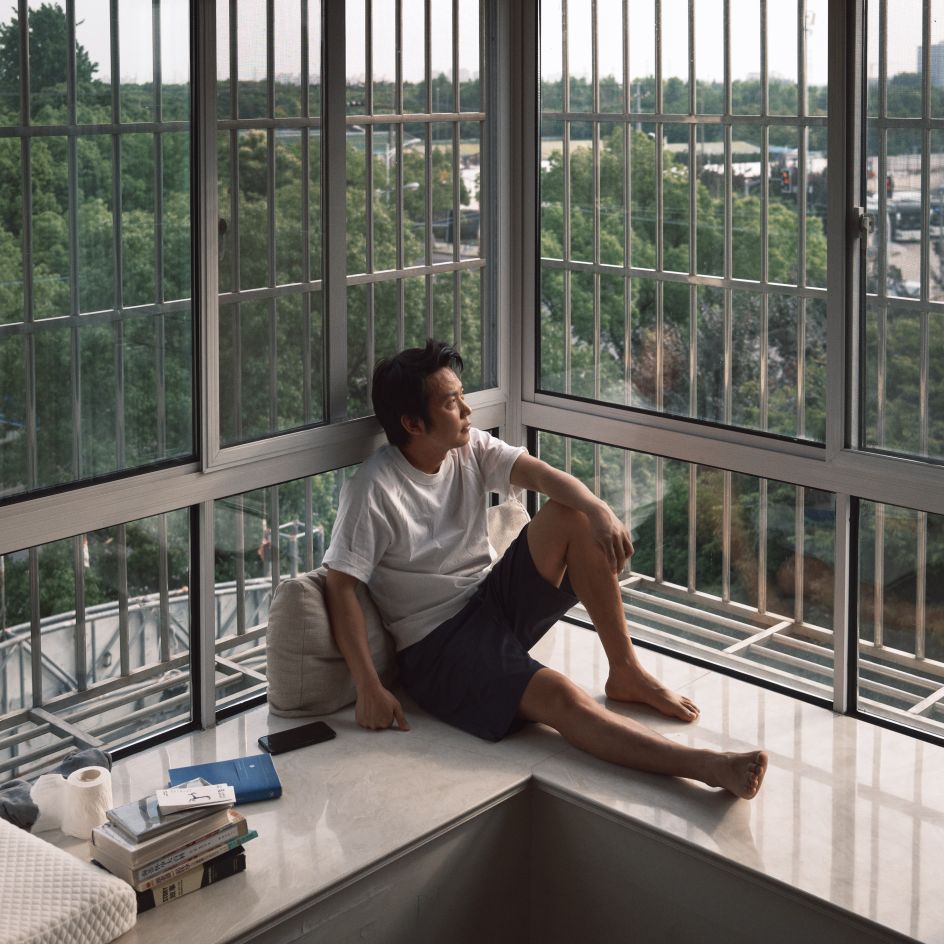
RenXiong © Johnny Man
RenXiong's mother and niece travelled to Shanghai in early March. This was followed by the rapid outbreak of Omicron, which led them to get stuck with RenXiong. And as his pregnant wife had a due date of August, RenXiong couldn't take his chance, like some of his friends, to escape to other cities. "In my friend's words, I have been sealed to this place," he says.
Three weeks after the citywide lockdown, RenXiong suffered from a high fever for several days. He was afraid that he'd somehow got infected with Omicron, so he had no choice but to isolate himself in the corner of the living room from the rest of his family and make everyone wear masks at home.
RenXiong tried not to make contact with anyone in the house, especially his pregnant wife. Fortunately, the results of a stream of Covid tests appeared negative.
However, RenXiong remains highly anxious after the reopening on 1 June because the amount of commissioned shoots declined significantly due to the worry that any given street or compound would be back to lockdown again if a positive case was found. Uncertainty continues, and so does the problem of lost income. "The next step is to wait for jobs," he says.
When Johnny came to Ginny's apartment, she'd already packed most of her luggage. Being confined at home for nearly three months, she'd quit her job, intending to return to her hometown in Henan for a break.
Omicron cases were found in Ginny's compound as early as March, so she'd been forced to stay home since then. She said she didn't feel too anxious psychologically, but her body language told a different story. She was losing larger amounts of hair than ever and couldn't sleep beyond 4am, even if she went to bed late.
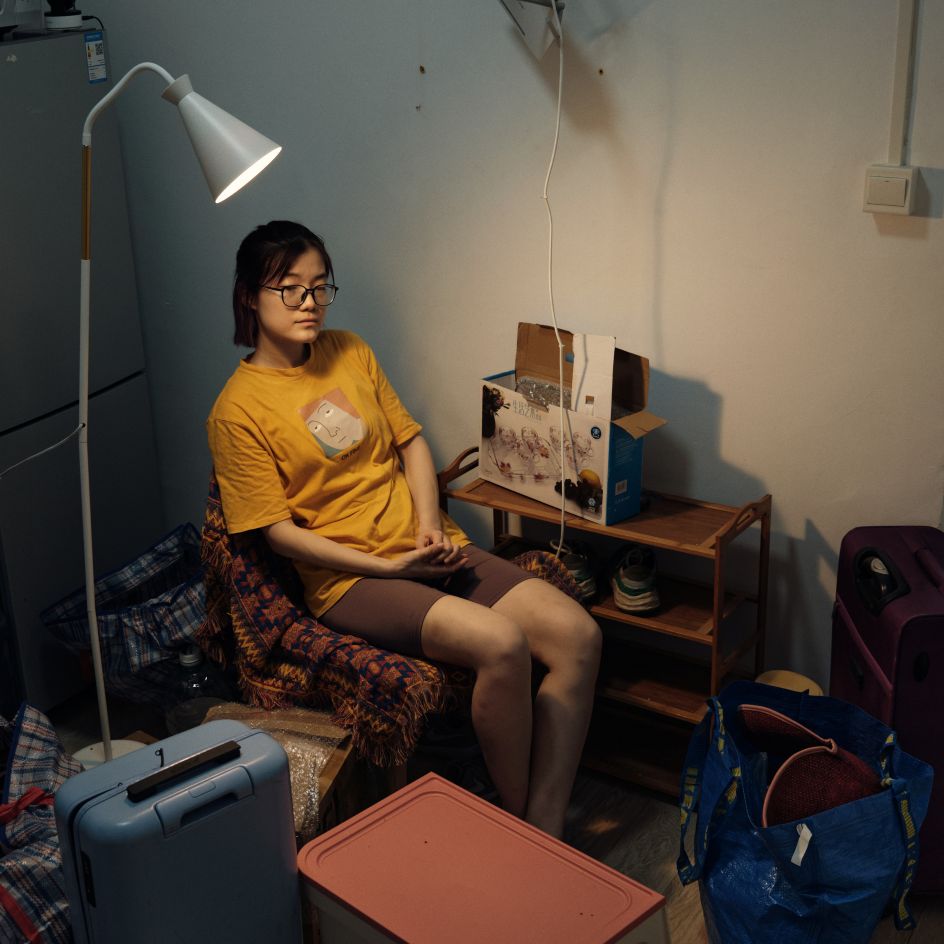
Ginny © Johnny Man
She was kept company by two cats during lockdown, Huzi and Taobao. While there was a food shortage in Shanghai, Huzi and Taobao also suffered from a cat food shortage. Ginny would share her chicken breast with them, but she was not that lucky herself. The food supplies she received from the government included rotten vegetables, mouldy canned food and the infamous pork with pig nipples.
As soon as the city reopened on 1 June, Ginny went out wishing for a decent meal in a restaurant with friends. Yet after walking for two kilometres, she found none that were open. Disappointedly, she returned home and ordered takeout. Ginny says she'll return to Shanghai when the pandemic goes away, "There are more opportunities here, after all."
Elsewhere is HaiJun. The compound she stays in with her friends is located in the bustling city centre. But this didn't guarantee them better supplies from the government during lockdown. During the first two weeks, she got supplies only once, which contained a cucumber and nothing more.
What's worst came after. Staff from the neighbourhood committee, whose office is located inside the compound, were the first ones who tested positive.
Several residents had come to them for consulting before. Photos showed that they hadn't worn masks while talking to people, violating the pandemic prevention protocols. Fury broke out within the compound, followed by panic that the virus might spread between neighbours. "It's just ridiculous. It really is."
Attempting to avoid infection clusters, HaiJun refused to participate in the Covid test held daily in the compound. HaiJun is a university student. She has been taking online courses all this time and intends to go to Ireland for further study after the lockdown. But the lockdown situation continues.
When Johnny left HaiJun's house, fences were being put back up in streets and compounds where new cases had been found.
Kang, meanwhile, has been addicted to sleep, on which he spent most of the time every day since lockdown. He walked out of his compound for the first time in two months on the reopening day on 1 June. He passed by the streets where he walked every day to work, somehow struck with unfamiliarity, "Like I don't know this place anymore."
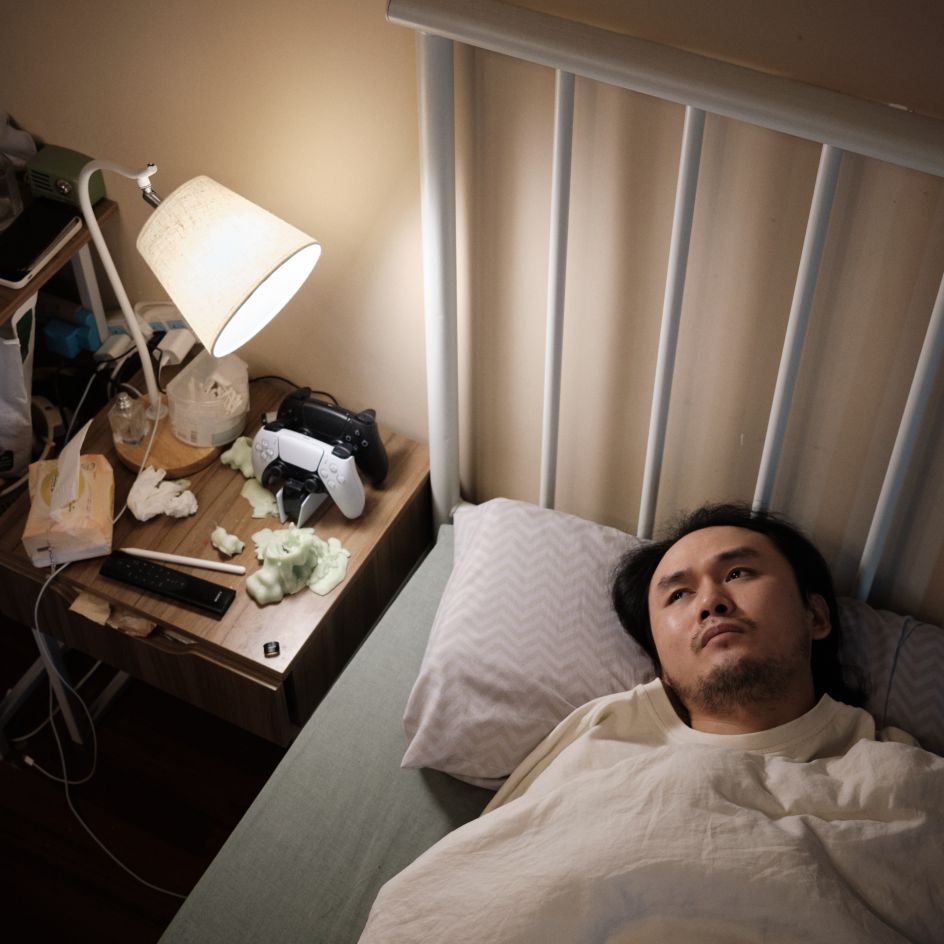
Kang © Johnny Man
A similar sense of unfamiliarity also occurred in March, when the citywide lockdown had not yet become an option, though case numbers were rising and more compounds were coming under lockdown. Kang's was one of them. Residents were not allowed to leave their own buildings; all packages or takeouts would be delivered by volunteers.
Kang ordered takeout, but nothing was delivered to him, even two hours after the food had arrived at his compound. He was so hungry he couldn't stand it anymore, so he left the building to fetch the food at the entrance. But he was stopped by a volunteer and got scolded. When Kang explained the situation, the response shocked him: "You can't leave your building. I don't care if you starve to death." Kang froze in dizziness without knowing where he really was. In his memory, Shanghai was never like this.
Kang works in a photo studio. He'd intended to open his own studio before the lockdown disrupted his plan completely. With the ever-strict zero Covid policy, the abrupt lockdown has become the new normal in China. To Kang, the future is too unpredictable to keep him motivated, "I can't see anything ahead, just muddle through the days."
One week before the reopening on 1 June, one positive case was found in the compound where Johnny's next subject, Samuel, stays. While the infectious person was being transferred to the quarantine centre, the rest of the residents were sent to a designated hotel for a five-day quarantine, despite all of them testing negative for Omicron.
In the quarantine hotel, Covid tests were arranged in the very early morning every day. Samuel said he often suffered panic attacks after the test, worrying that something might go wrong. He found it difficult to fall asleep until the result came out after midnight.
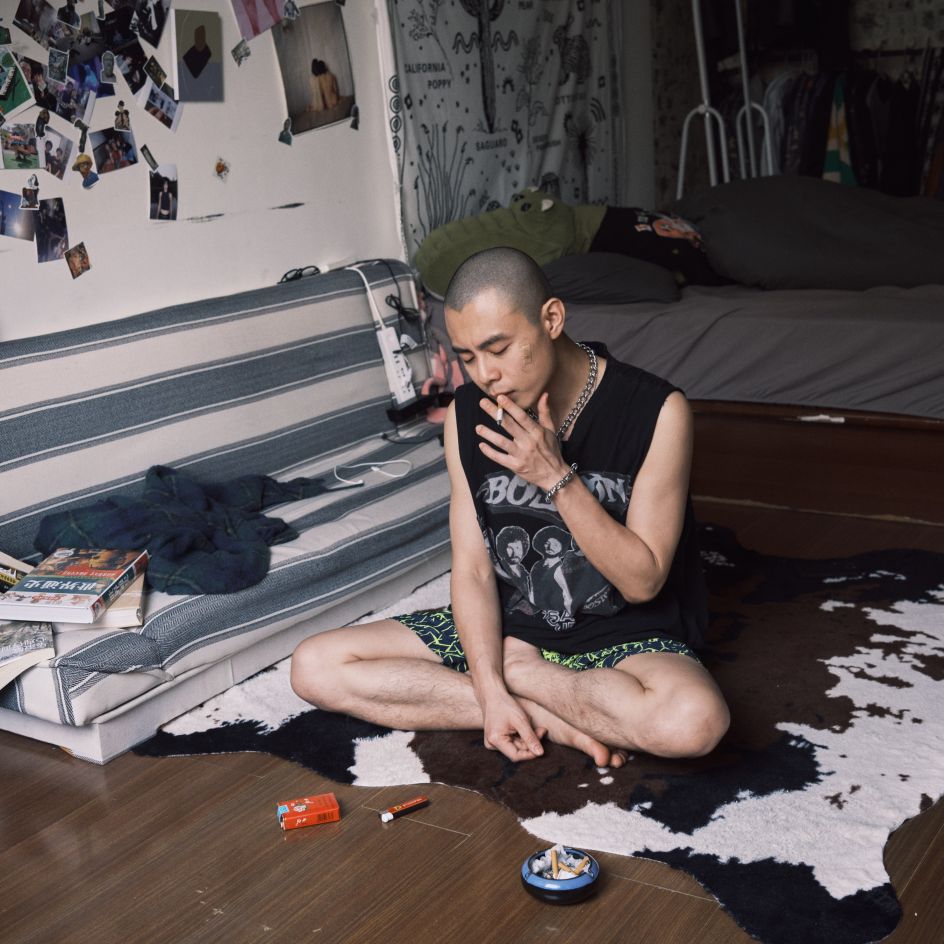
Samuel © Johnny Man
Soaking in panic attacks for five days drained Samuel and amplified his disgust at quarantine hotels. He intended to return to his hometown in Guangdong for a rest until he found out the local CDC would have him stay in a quarantine hotel for days before he could reach home, so he gave up the idea instantly. As a freelance makeup artist, Samuel has been out of work for nearly three months, yet he seems unnaturally indifferent. "I don't feel like doing anything. I've become numb."
Then there's Roxanne, who served as a volunteer barber in her compound at the early stage of lockdown. Even though she had no experience cutting hair before and therefore ruined a few haircuts, neighbours still adored this shy yet warm-hearted girl. So when the news about Roxanne getting arrested circulated in the compound, everyone was shocked.
It all started with a poster. At the time, deliveries were almost shut down entirely. Food supplies that were supposed to be sent by the government had been absent for quite a long time, resulting in severe food shortages for many families.
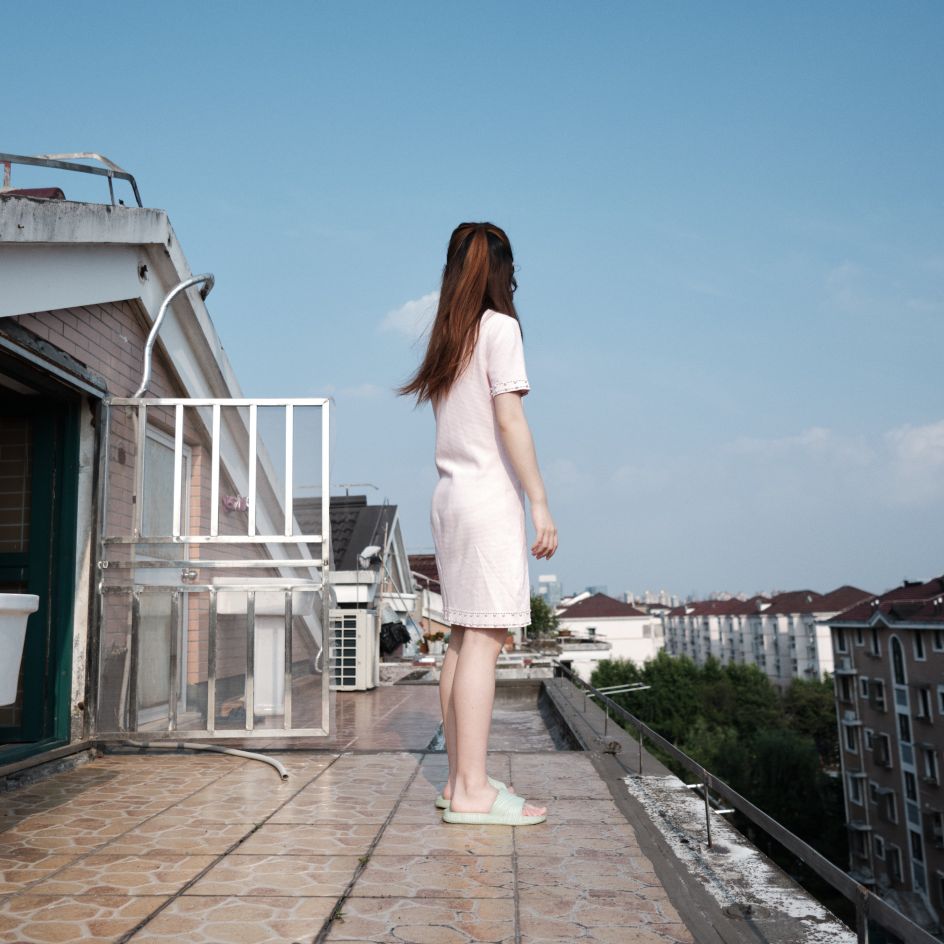
Roxanne © Johnny Man
At this time, some people started to draw posters, encouraging others to protest about the situation at home by clanking pots and pans to ask for supplies. Creative posters started to circulate in different compound group chats on WeChat. Roxanne was inspired and drew a poster as well, then sent it in her compound group chat. Many people responded actively, which led the police to quickly bring her into custody.
Roxanne was interrogated by more than ten police officers with harsh threats and had her phone checked thoroughly.
"Why did you draw the poster?"
"To ask for food."
"Why did you call on people to protest together?"
"So that we can ask for food together."
The police kept laughing afterwards.
Roxanne was kept in the police station for 24 hours before she was released. Two meals were given to her, which consisted of fried chicken, shrimp and green vegetables. She said they were way better than what she'd had at home at that time. Roxanne received many gifts after returning home from neighbours who called her "hero" in the group chat and appreciated her bravery. "I might not have drawn the poster if I knew I'd get arrested," Roxanne said with a bitter laugh.
After reopening, Roxanne felt tired all the time. She had to halt the plan to change her job because of lockdown. She didn't find any excitement in the reopening. "Don't feel like cheering at all, not to mention some people are still in lockdown."
Then there was Echo. It's been seven years since she first came to Shanghai. She loves the city from the bottom of her heart. Shanghai, in her opinion, is the most civilised and free city in mainland China. But she's deeply disillusioned after witnessing how, in the strictly two-month-long lockdown, the government trampled its own citizens' human rights which, in some cases, resulted in costs of lives.
She's pretty annoyed by the self-consolation statements some people posted online. "Life will nevertheless return to normal again sooner or later. Just put up with it in peace." She can't relate to this ignorance and self-deception at all.
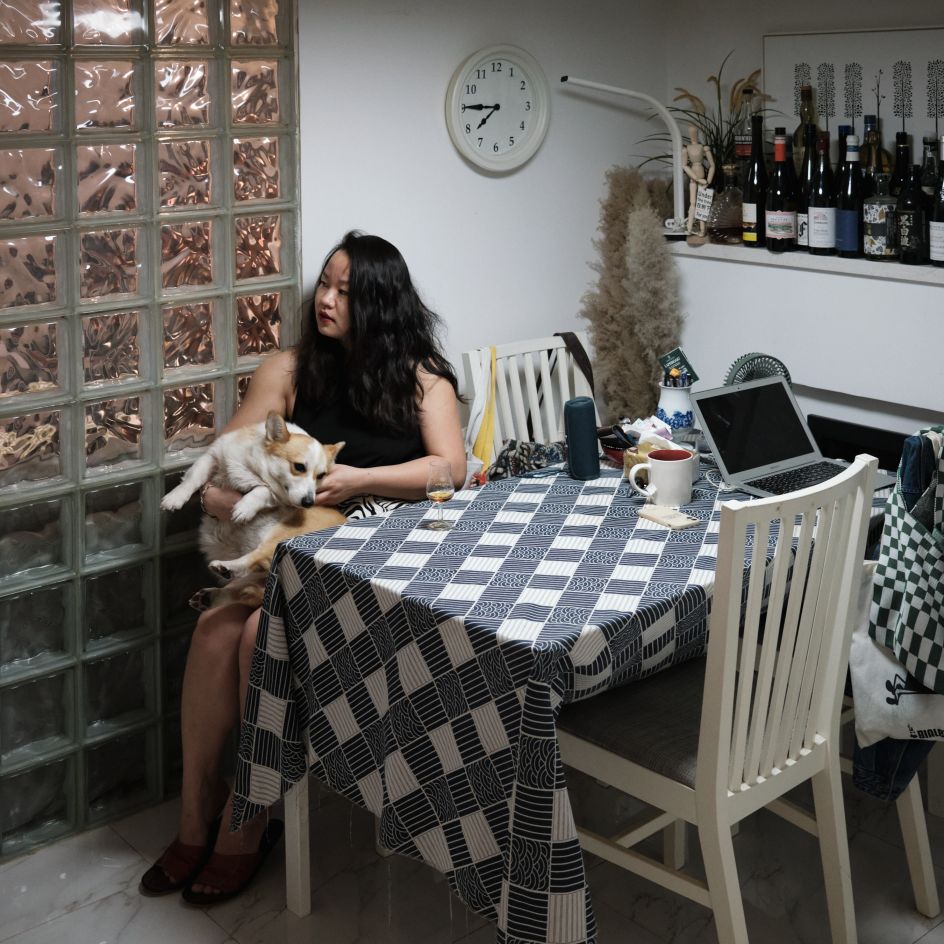
Echo © Johnny Man
She thinks the fear and anxiety people feel inside during this lockdown can't be driven away. "You'd probably forget about this if it lasts only for two days. But the truth is, you felt like you were getting beaten up every day for the last two months. How are you gonna forget about this?"
Echo will leave for Europe to study by the end of this year. The decision was made before the lockdown, but her determination has been reinforced by all this. "For now, since it's my last year in Shanghai, my mind is like being an outsider, witnessing history with everybody here, having experiences that others might never have in their whole lives."
Kay was another one Johnny photographed. She didn't feel too unpleasant when the lockdown first occurred. Home is a place where she feels comfortable and allows her mind to flow, which leads to her inner peace. So she stayed home most of the time, even before the lockdown. However, as the lockdown kept expanding its days, and with no one having a clue when the reopening would come, Kay felt a strong sense of loss of freedom, both physical and mental.
Shanghai used to give Kay an impression of inclusiveness and encouraging people to express themselves fully. Yet the strict censorship against online criticism of the government contradicts the image it used to present.
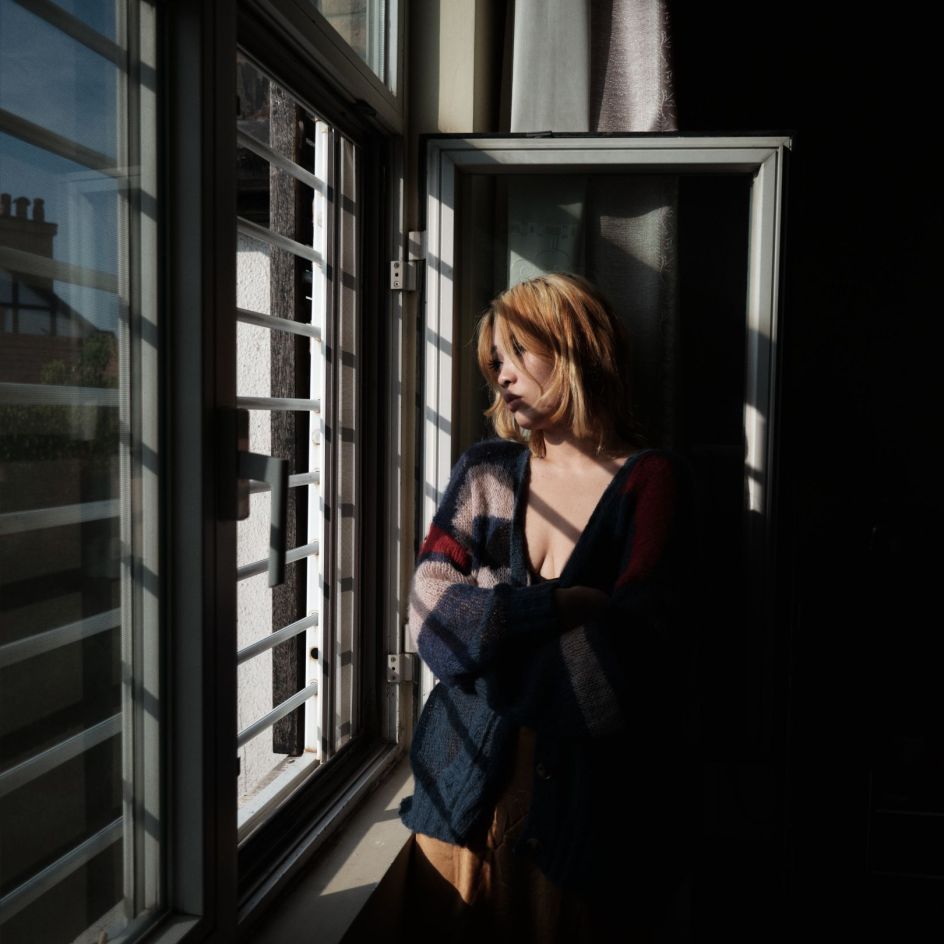
Kay © Johnny Man
The discrepancy puts Kay under great anxiety. Even after reopening, she couldn't get rid of this anxiety, especially when she saw things were gradually getting back to normal. At least that's how the facade appears. She feels like what happened in the last two months didn't really happen. Yet it did. This ambiguity leads Kay into a sense of unease, if not nihilism.
Kay started her own business at the end of 2019, but it collapsed soon after the pandemic broke out. Kay pulled herself together this year, starting a new company in the advertising industry with friends. Not long after they rented an office in March, Shanghai started its harshest two-month long citywide lockdown in history.




 by Tüpokompanii](https://www.creativeboom.com/upload/articles/58/58684538770fb5b428dc1882f7a732f153500153_732.jpg)


 using <a href="https://www.ohnotype.co/fonts/obviously" target="_blank">Obviously</a> by Oh No Type Co., Art Director, Brand & Creative—Spotify](https://www.creativeboom.com/upload/articles/6e/6ed31eddc26fa563f213fc76d6993dab9231ffe4_732.jpg)








